- Home
- Alison Weir
Arthur- Prince of the Roses Page 3
Arthur- Prince of the Roses Read online
Page 3
Father Andre read the letter and nodded approvingly.
‘Very proper, very proper,’ he observed, handing it back to Arthur to be sealed.
Whenever Arthur went to court these days the talk was of his wedding. He did his best to look happy about it, but sometimes he felt that events were spinning away out of his control. He also felt like an outsider in his family. He was there in Ludlow, most of the time – and they were all here together, or near each other, in the palaces on the Thames. And there was Harry, ruling the roost in the nursery at Richmond – Harry was eight now and he had not been uprooted and sent away – with Margaret and the baby Mary, who was three, and Harry’s shadow in all things. There was Mother, doting on them all. And here was Arthur, isolated because he would be king one day. Even so, he knew that Harry would have given much to change places with him.
Just now Harry was full of Perkin Warbeck, who had escaped from the Palace of Westminster.
‘They’re hunting him down!’ he told Arthur with some relish, one night at supper. ‘He can’t avoid capture.’
‘He is a fool,’ Father said. ‘He was treated well. He had every comfort.’
‘Except his liberty,’ Mother chimed in.
‘And he wasn’t allowed to lie with his wife!’ Harry piped up.
Father frowned. ‘We could not have him siring children to take up his cause. He was lucky that he escaped a traitor’s death.’
Arthur was still puzzled about that. ‘Why did you show him such mercy, Sir?’
‘Because he was a fool and others had used him for their own purposes. But I will be merciful no longer. He will be treated like any other felon.’
Mother winced. Surely she did not still wonder if Warbeck was her brother? She had seen him daily; she must have known who he really was. But, being Mother, she said nothing. It was often hard to know what she was thinking.
Harry reported the news with glee when Warbeck was taken; he was in the Tower, in a cell without a window.
Arthur knew that he was not the only young man held in the Tower. He did not like to think of Mother’s cousin, the Earl of Warwick, who had been imprisoned there from childhood on Father’s orders.
‘It is necessary, believe me,’ Father had said, when Arthur had once asked what Warwick had done wrong. ‘He is of the old royal blood and could easily be set up as a figurehead by those who want to depose me.’ Arthur was aware that there were any number of wicked people who might plot against his family, for there yet lived several heirs of the House of York who coveted the throne. Many had backed Perkin Warbeck. Arthur understood why Father had had to treat Warwick so harshly. Yet it did trouble him. What must it be like to be cut off from all your friends, shut up in a prison without exercise or diversions, and deprived of any education? Small wonder that people said Warwick could not tell a goose from a capon.
That autumn, back in Ludlow, Arthur was not completely surprised to hear that Warbeck and Warwick had been discovered plotting treachery together, and were both to be executed. You could hardly blame the hapless Warwick for seizing his chance of overthrowing the man who had robbed him of his life, but it was just such a stupid plot. How did those two idiots even think they could have escaped, let alone taken the Tower and raised a rebellion? But stupid or not, what they had done was treason by any definition, and they deserved to die for it.
Soon after the executions, Arthur was summoned back to court, and was with the King when he gave audience to the Spanish ambassador. They were discussing the wedding, yet again, but Father seemed even more bullish and satisfied than usual.
‘Your Excellency will no doubt be gratified to report to the Sovereigns that it has pleased God that not a doubtful drop of royal blood remains in this kingdom, except the true blood of myself and the Queen and, above all, that of Prince Arthur,’ he said.
‘Their Majesties will be reassured to hear that,’ Dr de Puebla said, in his usual unctuous manner. ‘Now we will proceed to the arrangements for the marriage.’ He beamed at Arthur. It rather sounded to Arthur as if a barrier to the marriage had been removed. He glanced sharply at Father, but Father had gone on to speak of the celebrations he had ordered for the Infanta’s reception, and looked as if nothing in the world was amiss. Arthur thought no more of it.
It was the year 1500. A new century was about to begin. People spoke of a golden age to come under King Arthur and Queen Catalina. Arthur knew Father was not liked; the taxes he imposed were too burdensome. But he had brought peace to a kingdom torn by civil war; his treasury was full; and he had triumphed in securing the Spanish alliance. In January, Arthur was told that the Infanta would be coming in September, when he had had his fourteenth birthday. He prayed that he would be ready for marriage by then.
But that spring he began to feel unwell, as if he was going down with a fever. He found himself sweating, even though the weather was not warm, and then he began coughing. Dr Linacre diagnosed an ague. There was nothing to worry about, he said.
By the summer, Arthur had lost weight. He had always been lean and lanky, which his growth spurt had exacerbated, but there was no denying that he was shrinking inside his clothes – and that he still felt ill. When he visited court, he made little of his ailment. It was just an ague, he said dismissively. But Mother kept looking at him anxiously, and Father unexpectedly pressed a hand to his forehead and said, ‘My boy, you are burning up.’
‘It’s nothing,’ Arthur said. ‘Dr Linacre told me not to worry.’ But Father and Mother still looked concerned.
Father took him aside. ‘Arthur,’ he said, ‘the Infanta will be here in a few weeks, and soon it will be time for you to do your duty as a husband. You know what I’m talking about?’
Arthur nodded, blushing furiously, to his mortification. ‘Yes, Sir.’
‘We do not want you overexerting yourself, especially in view of this continuing ague. I think it best if you consummate your marriage but live apart from the Infanta after that – for a couple of years at least.’
Arthur could think of nothing he’d like better – apart from the bit about consummating the marriage. If he still felt as he did now, he would just not be up to it.
‘Yes, Sir,’ he said again.
Father gave him a curious look. ‘I was expecting a protest.’
‘Not at all, Sir,’ Arthur replied.
‘We must not overtax your strength,’ Father said. ‘It is dangerous for young people to overexert themselves in the marriage bed. The Infanta’s brother, the heir to Spain, did that, and died.’
Arthur had heard that. He was sure that the Infanta, of all people, would understand.
As the weeks passed, his cough worsened. He was still losing weight. But he would not give in to this wretched ague; he would not let it get the better of him. He decided that he would never complain and would make little of it. He could not risk anyone suggesting that he was not fit to be his father’s heir, for he could not bear the thought of being passed over for Harry.
Fortunately no such idea seemed ever to have occurred to Father. He was too busy telling everyone that no expense was to be spared for the wedding of his heir, though the Infanta’s departure was once again delayed for one reason or another. Arthur began to think that she would never come, but in the March after he turned fourteen, in the year of Grace 1501, word came from Spain that she was at last on her way.
Overjoyed, the King lavished fourteen thousand pounds on jewels for the happy couple. But there were storms at sea, and the Infanta’s fleet was forced to return to Spain. It was not until October that Arthur heard she had finally set foot in England, at Plymouth.
Arthur was then at Ludlow. His symptoms were worse rather than better. Lately he had suffered pains in his chest and, when he coughed, there were sometimes spots of blood on his kerchief. But he kept on pretending that all was well and he washed out the blood in
secret.
He wondered wretchedly if he was dying. He had heard of people coughing blood and dying soon afterwards. In truth, he was feeling so awful these days that he hardly cared – well, not for himself. It was his parents who would grieve for him. It would be ironic if he expired just as he was about to be married, after thirteen years of negotiations. He looked in his mirror and saw a poor, thin travesty of the Prince he had been not so long ago. A fine bridegroom for the Infanta! He prayed that his changed appearance had not struck too many others.
It was vital to carry on as normal. He could not let Father or Mother or anyone else down. However bad he was feeling, he would defy this thing, whatever it was.
Even at Ludlow he received reports of the Infanta’s rapturous welcome by the people of Plymouth, and of the jousts and feasts the King had hosted in the Tower of London to mark her coming. Then came the summons to court and the inexorable journey through the golden autumn countryside towards his marriage.
They were deep in Hampshire when a royal messenger halted Arthur’s procession and announced that the King wished his dearest son to meet with him at Easthampstead, near Woking, whence they would ride together to greet the Infanta.
As his party neared Easthampstead, Arthur was filled with an encroaching sense of dread. He was not ready for this. He would as soon meet his bride as wed Harry. But Father, when he joined him, was as excited as if he were going to his own wedding.
‘We must see the Princess!’ he kept saying. ‘By all reports she will lay this night at Dogmersfield.’
‘I thought we were to receive her in London, Sir,’ Arthur said.
‘That was the plan,’ Father replied, ‘but I want to see my son’s bride and be reassured that she is as fit a mate for you as I was led to believe.’
Arthur leaned forward in his saddle. ‘Does your Grace have reason to believe she is not?’
‘Not at all,’ Father said. ‘But if I have learned one valuable lesson in life, it is to trust no one. Caveat emptor!’
Dogmersfield was in darkness when they approached. The cold night air made Arthur cough and as he strove in vain to suppress it, Father looked at him anxiously.
‘I just caught my breath,’ he said weakly. ‘’Tis nothing, Sir.’
Father nodded. He dismounted, and Arthur followed suit, then followed the King into the Bishop’s Palace. There they were greeted by Dr de Puebla and two outlandishly dressed Spaniards: the Infanta’s chamberlain, who was expansively welcoming, and a fearsome dame with olive skin and a sharp nose, who introduced herself as the Infanta’s duenna, Doña Elvira. By her manner, you might have thought that he and Father were ruffians come to ravish her charge.
‘I wish to see the Princess!’ Father said, pleasantly enough, as Arthur took a deep breath and braced himself, but the duenna bristled and gabbled something in rapid Spanish with tones of outrage.
Dr de Puebla turned to Father. ‘I regret, Sire, that the protocol of my country demands that the Infanta must remain veiled until she is married. She may receive no man.’
Father’s gaunt face darkened with suspicion and Arthur began to wonder if his bride really was deformed or ugly.
‘Tell this woman,’ Father commanded, in a tone that would brook no argument, ‘that the King will see the Princess even if she is in her bed.’
There was more incomprehensible gabbling, then Doña Elvira flounced resentfully off up the stairs.
‘Well?’ Father snapped.
‘The Infanta is being made ready to receive Your Graces,’ Dr de Puebla told him.
Presently a pretty young Spanish girl came hastening down the stairs, curtseyed, and bade the King and the Prince follow her. At the entrance to the Infanta’s apartments, a herald announced them, and there, standing before them, her head bowed, was a diminutive girl in crimson velvet with an embroidered veil of white lawn covering her person down to the waist. Tendrils of red-gold hair curled to her hips, glinting in the candlelight. As the King approached, she knelt gracefully before him. Arthur’s heart was in his mouth. This was the moment he had been dreading.
‘Welcome to England, Your Highness,’ Father said, then raised the Infanta to her feet. With both hands, he lifted the veil.
Author’s Note
This story is based closely on historical sources. My account of Prince Arthur’s illness owes much to the ground-breaking research of Katherine of Aragon’s recent biographer, Patrick Williams. Thanks to his discovery of the testimony of Katherine’s physician, Dr Alcaraz, given in 1531 at Zaragoza, we can now be fairly certain that Arthur suffered from tuberculosis. My own research uncovered no evidence for an outbreak of the sweating sickness at Ludlow, where he died.
It has often been asserted that Arthur was not delicate as a child, but in fact he spent at least the first six months (and possibly the first two years) of his life at Farnham Castle because he was a frail infant and required careful nursing. When he was not quite fourteen his father, Henry VII, did express concerns about the effect that the physical obligations of marriage would have on Arthur’s weak constitution, and his opinon that the couple should live apart for a time after their marriage had been consummated.
Arthur was also a premature baby, and this early and lengthy separation from his mother, Elizabeth of York, may have affected the relationship between mother and son. A substantial body of modern research has shown that maternal responsiveness towards premature babies can be limited when there has been a prolonged period of separation after birth.
There is no evidence to suggest that Arthur experienced the learning difficulties that can affect premature children, but new research, based on a study of a million births, shows that prematurity can have consequences into adulthood, and that such children have an increased risk of dying in late childhood compared with babies delivered at full term; in late childhood, boys in particular have a seven-fold increased risk of dying. That may not impact greatly on today’s low mortality rates, but it would have had serious implications five hundred years ago. Thus it is likely that Arthur had a lifetime risk of poor health because he was premature – and that this factor contributed to his early death.
We know very little of Arthur’s feelings about his bride. He did write those eloquent, loving letters, but they were probably dictated by tutors. He may well have dreaded marriage, given his state of health and the dynastic expectations that weighed on him. To me, it is telling that he left all his personal effects to his sister Margaret, not his wife of six months, Katherine.
Nor do we know anything of Arthur’s relations with his brother, the future Henry VIII. I think it’s fair to assume that there must have been some sibling rivalry, and that the delicate Arthur felt wanting beside the robust Henry – who was perhaps all that Arthur, the heir to the throne, was expected to be.
It is tantalising to speculate on what kind of king Arthur would have made, had he lived. The impression one gets from the sources is of a budding Renaissance prince who was good at his lessons, but somewhat serious and struggling with the bodily weakness that would eventually overcome him.
For Katherine of Aragon’s full story, don’t miss
A Spanish princess. Raised to be modest, obedient and devout. Destined to be an English Queen.
Six weeks from home across treacherous seas, everything is different: the language, the food, the weather. And for her there is no comfort in any of it. At sixteen years old, Catalina is alone among strangers.
She misses her mother. She mourns her lost brother. She cannot trust even those assigned to her protection.
History tells us how she died.
This captivating novel tells us how she lived.
Keep reading for an extract from this spectacular novel.
SIX TUDOR QUEENS.
SIX NOVELS.
SIX YEARS.
www.sixtudorqueens.co.uk
Chapter 1
1501
The coast of England was closer now. Standing at the balustrade of the deck, high above the stern of the ship, with tendrils of red-gold hair whipping about her face, Catalina could see green and brown hills and the spires of churches, with houses huddled together beside them; and, at a dizzying distance below, between the land and the rolling vessel, the grey churning sea. How different it all looked from La Coruña, with its warm blue waters and its mighty Tower of Hercules, or the dramatic wide sweep of the bay of Laredo! Everything was going to be different from now on.
Her maid-of-honour and dear friend, Maria de Salinas, was standing beside her.
‘It cannot be long now till we come into port,’ Catalina said. ‘When I think how many years I have dreamed of coming to England, I cannot quite believe I am nearly there. I thank God that you are with me, Maria. I would not want to face this alone.’ There was no one else to whom she would have admitted that.
‘And I am glad of Your Highness being with me,’ Maria replied. She was two years older than Catalina, and they had been friends all their lives. It was typical of Maria to have pulled off her cap and let her rippling long night-black hair blow free in the wind. She was almost dancing with anticipation, her large eyes luminous as she gazed at the land ahead. Catalina reminded herself that Maria was also going into the unknown. It was expected that she and the other young ladies in attendance on their infanta would be found well-born husbands in England. But where Catalina was facing the future with a certain trepidation, Maria could barely contain her excitement.
‘Soon I will come face to face with Prince Arthur,’ Catalina said. She had been told countless times that her betrothed was a golden prince, beautiful and graceful, with many excellent qualities, and that the English people hailed him as their great hope for the future. ‘I pray that I may please him.’ And that all will be well.

 Richard III and the Princes in the Tower
Richard III and the Princes in the Tower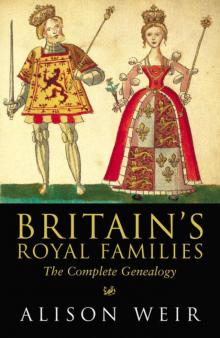 Britain's Royal Families: The Complete Genealogy
Britain's Royal Families: The Complete Genealogy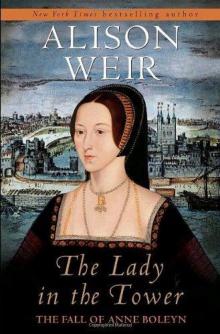 The Lady in the Tower: The Fall of Anne Boleyn
The Lady in the Tower: The Fall of Anne Boleyn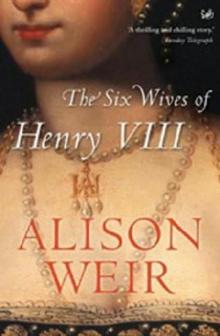 Six Wives of Henry VIII
Six Wives of Henry VIII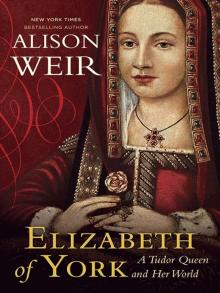 Elizabeth of York: A Tudor Queen and Her World
Elizabeth of York: A Tudor Queen and Her World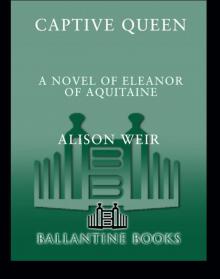 Captive Queen
Captive Queen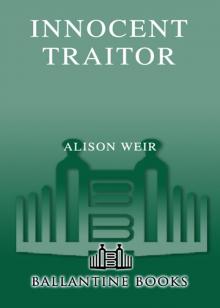 Innocent Traitor
Innocent Traitor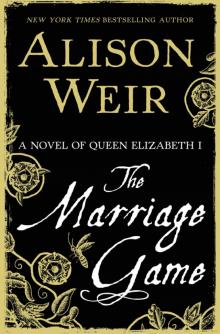 The Marriage Game
The Marriage Game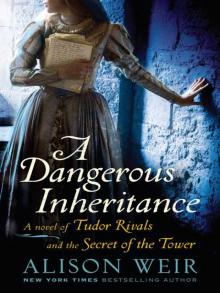 A Dangerous Inheritance
A Dangerous Inheritance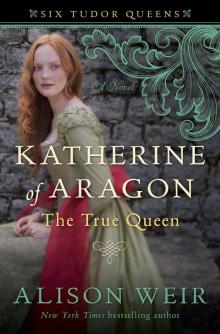 Katherine of Aragón: The True Queen
Katherine of Aragón: The True Queen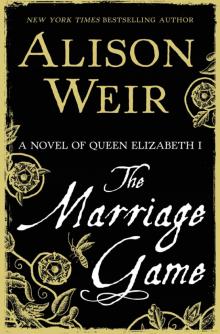 The Marriage Game: A Novel of Queen Elizabeth I
The Marriage Game: A Novel of Queen Elizabeth I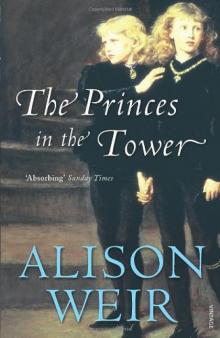 Princes in the Tower
Princes in the Tower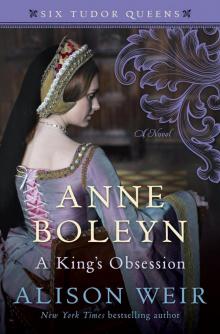 Anne Boleyn: A King's Obsession
Anne Boleyn: A King's Obsession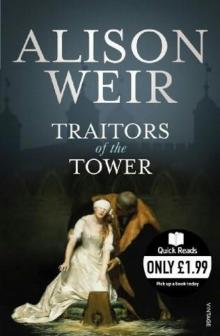 Traitors of the Tower
Traitors of the Tower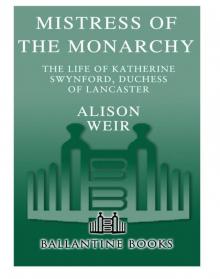 Mistress of the Monarchy: The Life of Katherine Swynford, Duchess of Lancaster
Mistress of the Monarchy: The Life of Katherine Swynford, Duchess of Lancaster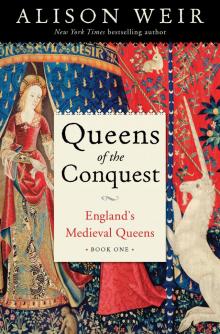 Queens of the Conquest: England’s Medieval Queens
Queens of the Conquest: England’s Medieval Queens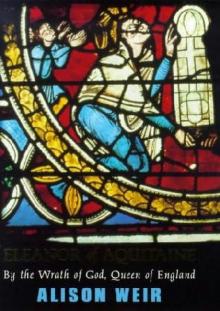 Eleanor of Aquitaine: A Life
Eleanor of Aquitaine: A Life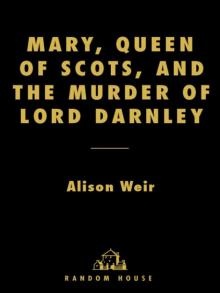 Mary, Queen of Scots, and the Murder of Lord Darnley
Mary, Queen of Scots, and the Murder of Lord Darnley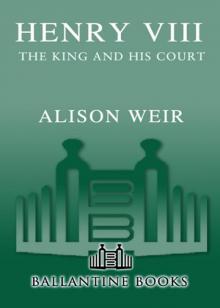 Henry VIII: The King and His Court
Henry VIII: The King and His Court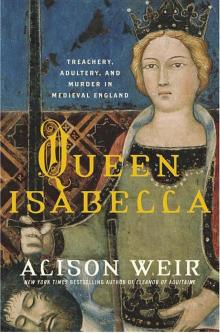 Queen Isabella: Treachery, Adultery, and Murder in Medieval England
Queen Isabella: Treachery, Adultery, and Murder in Medieval England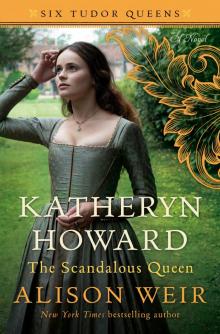 Katheryn Howard, the Scandalous Queen
Katheryn Howard, the Scandalous Queen Arthur- Prince of the Roses
Arthur- Prince of the Roses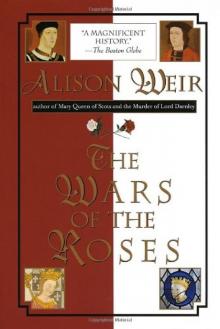 The Wars of the Roses
The Wars of the Roses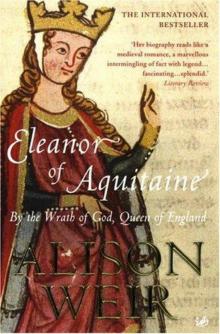 Eleanor of Aquitaine: By the Wrath of God, Queen of England
Eleanor of Aquitaine: By the Wrath of God, Queen of England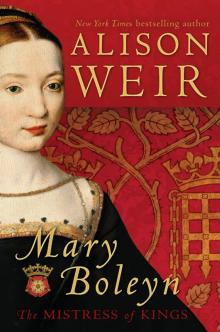 Mary Boleyn: The Great and Infamous Whore
Mary Boleyn: The Great and Infamous Whore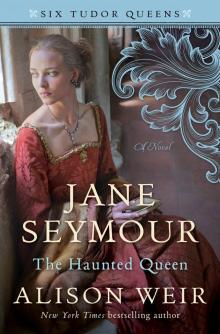 Jane Seymour: The Haunted Queen
Jane Seymour: The Haunted Queen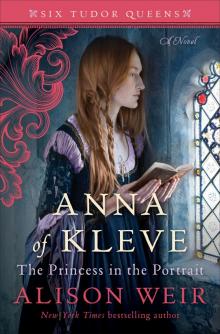 Anna of Kleve, the Princess in the Portrait
Anna of Kleve, the Princess in the Portrait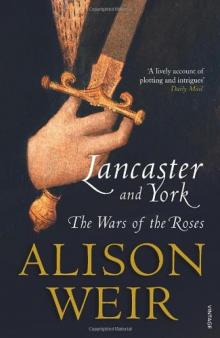 Lancaster and York: The Wars of the Roses
Lancaster and York: The Wars of the Roses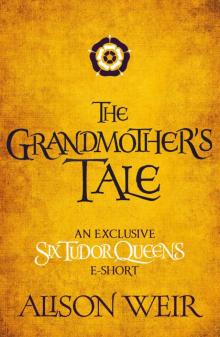 The Grandmother's Tale
The Grandmother's Tale The Princess of Scotland (Six Tudor Queens #5.5)
The Princess of Scotland (Six Tudor Queens #5.5)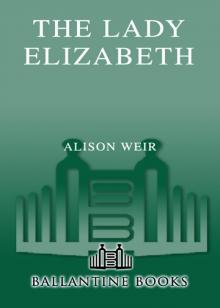 The Lady Elizabeth
The Lady Elizabeth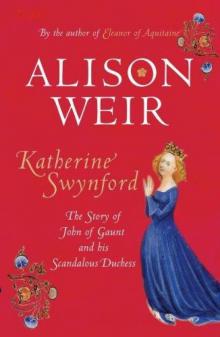 Katherine Swynford: The Story of John of Gaunt and His Scandalous Duchess
Katherine Swynford: The Story of John of Gaunt and His Scandalous Duchess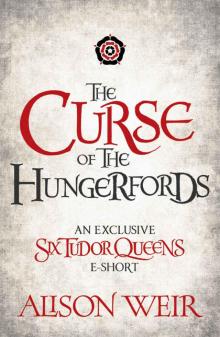 The Curse of the Hungerfords
The Curse of the Hungerfords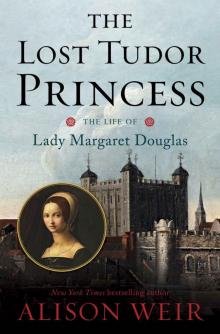 The Lost Tudor Princess: The Life of Lady Margaret Douglas
The Lost Tudor Princess: The Life of Lady Margaret Douglas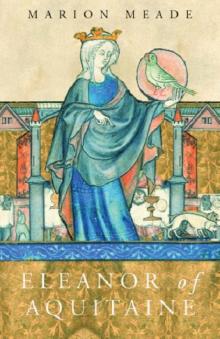 Eleanor of Aquitaine
Eleanor of Aquitaine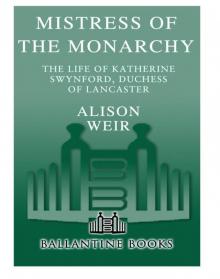 Mistress of the Monarchy
Mistress of the Monarchy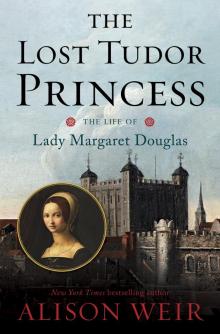 The Lost Tudor Princess
The Lost Tudor Princess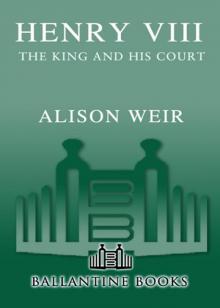 Henry VIII
Henry VIII Anne Boleyn, a King's Obsession
Anne Boleyn, a King's Obsession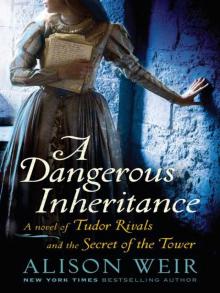 A Dangerous Inheritance: A Novel of Tudor Rivals and the Secret of the Tower
A Dangerous Inheritance: A Novel of Tudor Rivals and the Secret of the Tower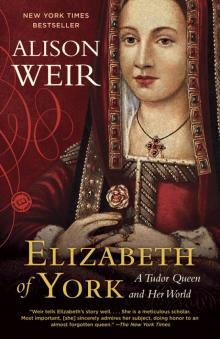 Elizabeth of York
Elizabeth of York Katherine of Aragon, the True Queen
Katherine of Aragon, the True Queen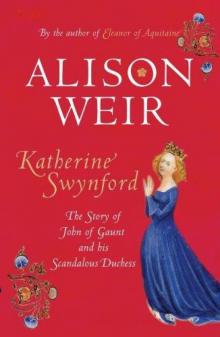 Katherine Swynford
Katherine Swynford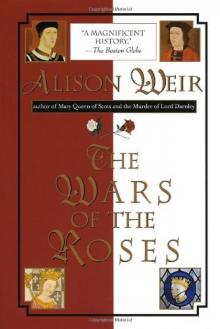 Wars of the Roses
Wars of the Roses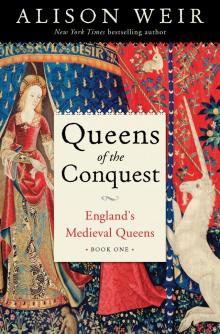 Queens of the Conquest
Queens of the Conquest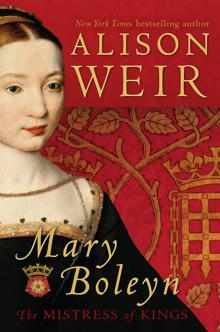 Mary Boleyn
Mary Boleyn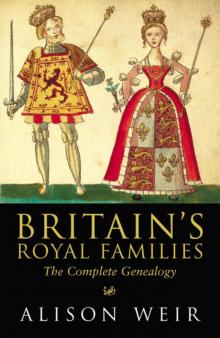 Britain's Royal Families
Britain's Royal Families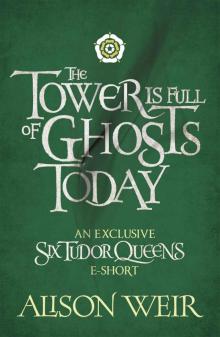 The Tower Is Full of Ghosts Today
The Tower Is Full of Ghosts Today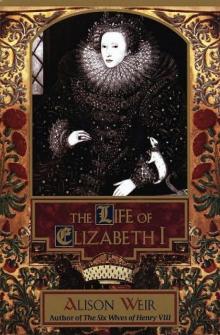 Life of Elizabeth I
Life of Elizabeth I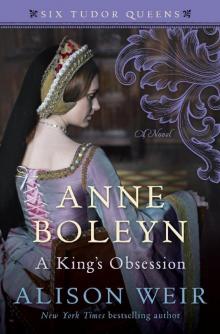 Anne Boleyn A King's Obssession
Anne Boleyn A King's Obssession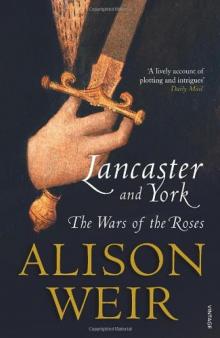 Lancaster and York
Lancaster and York Jane Seymour, the Haunted Queen
Jane Seymour, the Haunted Queen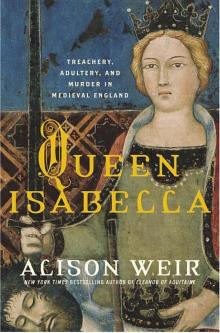 Queen Isabella
Queen Isabella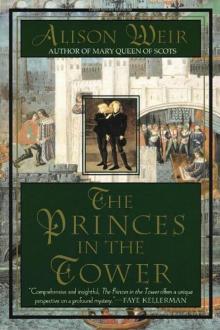 The princes in the tower
The princes in the tower